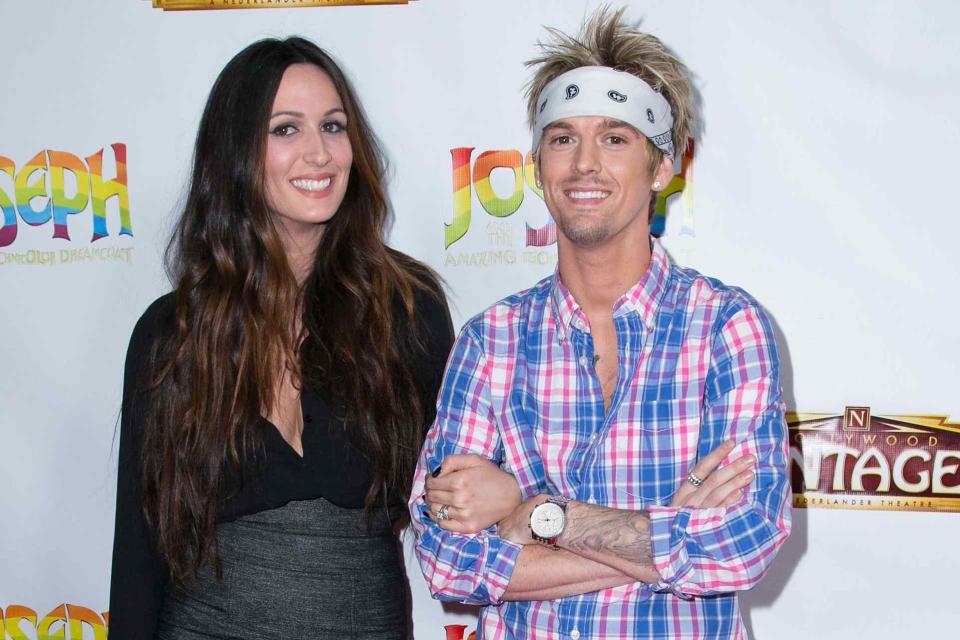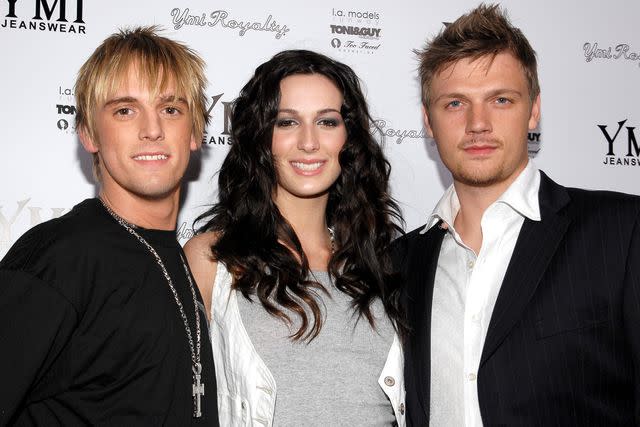Angel Carter Talks Breaking 'Generational Dysfunction' with Mental Health After Twin Brother Aaron’s Death
Angel Carter opened up to PEOPLE about how her brother’s death inspired her work with children's mental health organization On Our Sleeves

Angel Carter is using her voice to help end the stigma when it comes to speaking out about addiction and mental illness, an issue she knows all too well.
In honor of May’s Mental Health Awareness Month, the 35-year-old opened up to PEOPLE about her family's “painful” past and how the unexpected death of her twin brother Aaron Carter — who long dealt with addiction and mental health struggles — inspired her to support the children's mental health organization On Our Sleeves.
Following Aaron’s death, Angel put on the Songs For Tomorrow Benefit Concert in January with proceeds going toward On Our Sleeves, sparking a connection to the nonprofit that’s become close to her heart. "It really starts with children," she says. "It starts with creating a safe space for your children."
“After Aaron passed away, a fire went inside of me to want to continue the conversation about mental health and to break the stigma that surrounds it,” she tells PEOPLE. “So we put together the Songs For Tomorrow Benefit Concert and that was how I originally became involved with them.”
“They provide parents and caregivers with free expert resources for parents who are struggling or may not know how to address a mental health issue that their child is having,” Angel explains. “We're launching soon our teacher kits, which will provide the monthly lesson for children in the classroom to talk about mental health. We also have a program called Bloom, which helps parents and caregivers in the workforce have resources to address mental health and to again, create healthy conversation. It's all about creating conversation within the home.”

After realizing that she never had a “healthy space” to share how she felt growing up with "all of the chaos around me," she wants to be a champion for the mental health of kids. Addiction was an issue on both sides of her family, she says, noting that her parents came from “troubled homes” which she believes became a factor in the mental health struggles she and her siblings faced from a young age.
"There is a genetic component within my family," she says. “Unfortunately, I think that my parents repeated the cycles of what they grew up with. This is a generational dysfunction issue that these feelings are swept under the rug.”
Angel — who also lost her sister Leslie Carter to addiction — says it was “painful” to witness her family struggles, admitting that “we all needed intense therapy.”
“I was the only one who went to therapy,” she adds. “And I have been in therapy consistently every week since I was 18 years old. And I think that's really important that people understand that it's okay to need help. It's okay to ask for help.”
With their family in the public eye, Angel remembers her brother Aaron specifically having a hard time while, at the same time, their family was “struggling internally with addiction, with mental illness, with trauma within the home, a lot of trauma.”
Tragically, Aaron felt like he couldn’t ask for help with his mental health issues. Says Angel, "It's really important that people understand it's okay to ask for help."
Never miss a story — sign up for PEOPLE's free daily newsletter to stay up-to-date on the best of what PEOPLE has to offer, from juicy celebrity news to compelling human interest stories.
RELATED: Carter Family Woes: The Music Clan's Troubled History
“That's where On Our Sleeves really comes in and why children's mental health is so important. It really starts with children,” Angel stresses. “We don't call it prevention; we call it early intervention. And it's because you need to create those healthy conversations within the home from birth. It starts from birth, creating that space for your children.”
Now as a mother herself, Angel is hoping to break that cycle of “generational dysfunction” with her 4-year-old daughter Harper, removing the shame that she says is a “huge issue” with mental health struggles.
“I'm a mother now. And it is my job as a mother to end the cycle of dysfunction,” she says. “And that's what I'm focused on, is providing my child with a pure and innocent childhood, because that's something that Aaron didn't have. Aaron was a child working in an adult industry and working like an adult. And I remember him just always wanting to come home. He didn't want to be on tour. He didn't want to be working so hard. He wanted to be with his friends. And I think that Aaron, like a lot of child stars, was robbed of his childhood.”
“Children's mental health needs champions,” Angel tells PEOPLE. “We need to get that across, and it is our job as parents and caregivers and as a society to look out for our children.”
"If Aaron had the life that I had where he didn't suffer from addiction and his mental health had been managed, I believe this is exactly what he would have been doing with his life," she says. "Helping others."
And so in a time of great sadness, that has become her focus, "Grief comes and goes," she says. "I try to find peace in knowing that my brother is in a better place and that he's not suffering anymore."
For more People news, make sure to sign up for our newsletter!
Read the original article on People.

 Yahoo Sports
Yahoo Sports 